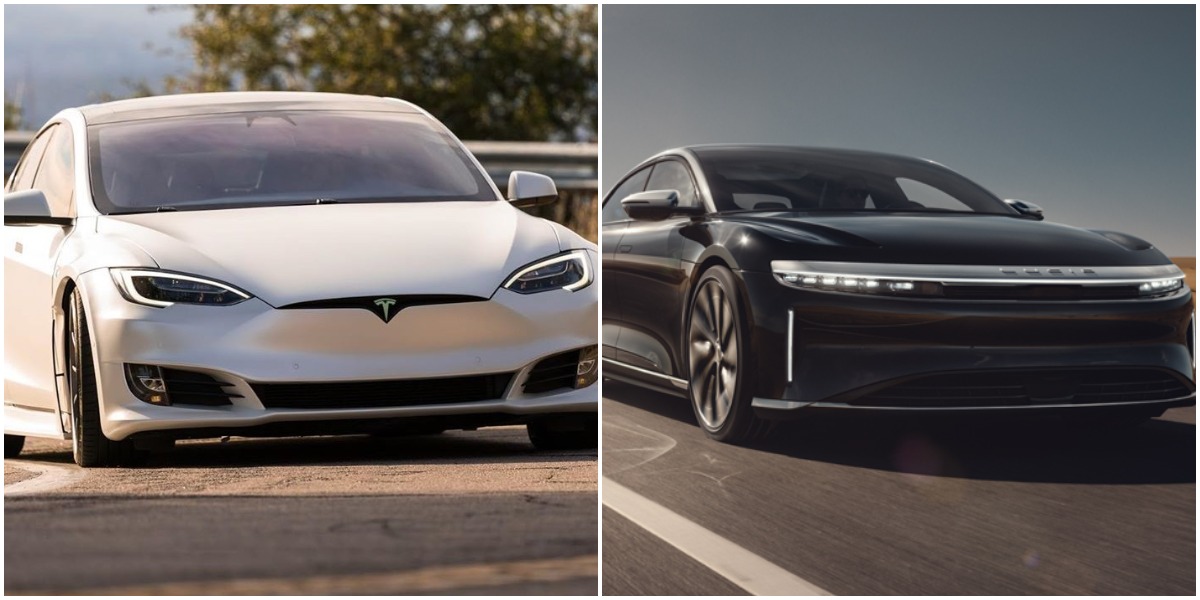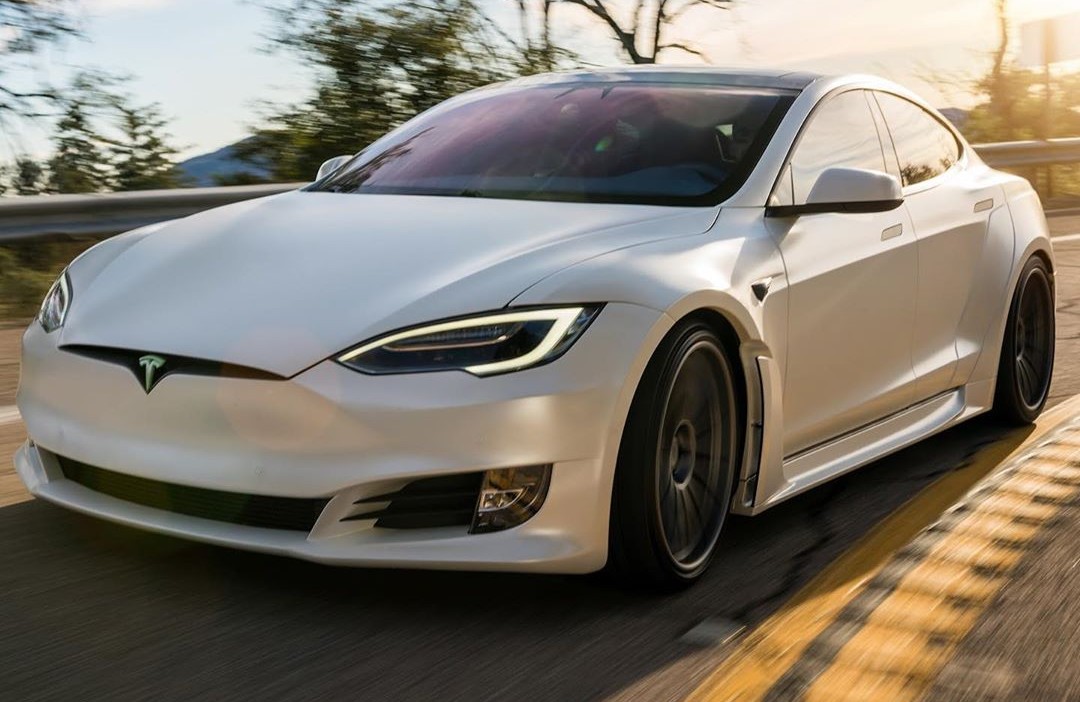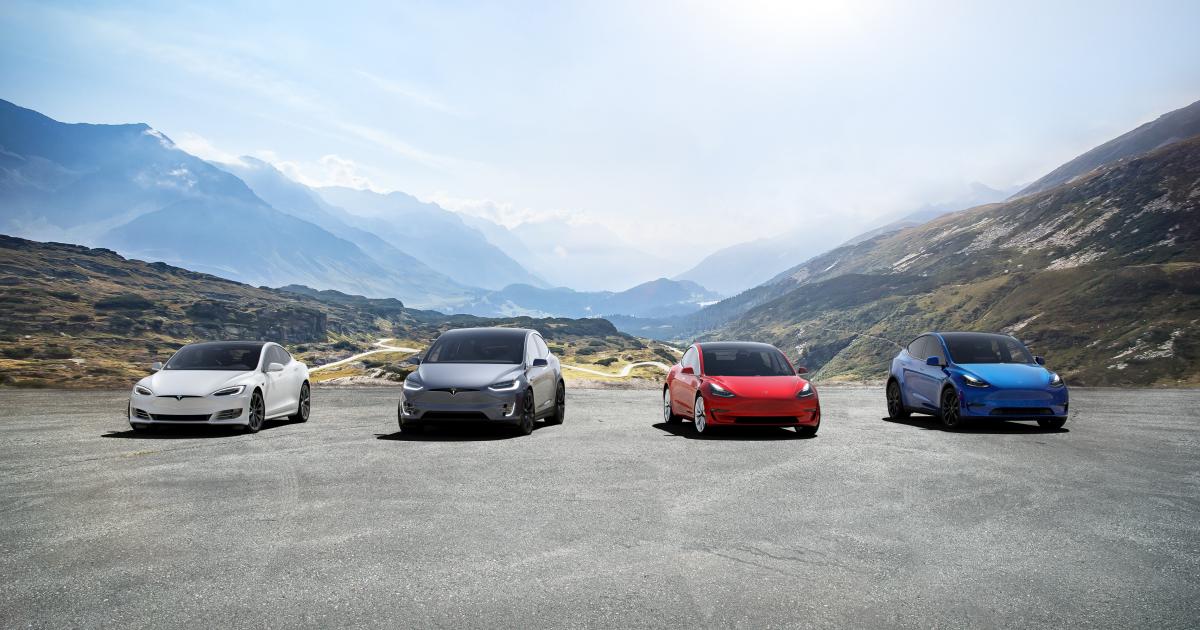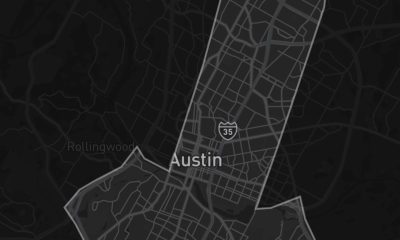

News
Why Tesla shouldn’t worry about Lucid’s 517-mile range
The Tesla Model S is no longer the highest estimated range EV on the market, and the Lucid Air is. After the latter company revealed that the Air, its first model, has an EPA-estimated range of 517 miles, it opened doors for Lucid to become a real player in the transition to sustainable passenger transportation.
However, Tesla still has a few significant advantages in the field despite the Model S losing the title of “best range on an EV,” because the company has a few things that Lucid does not.
Here are a few things to remember.
The Model S still has over 400 miles of range
Despite not having 517 miles of EV range, the Model S still has an impressive 402-mile rating per charge based on EPA estimates. The Long Range Plus variant has done wonders for EV competition and has solidified Tesla’s position as the leader in electric car development. It is important to note that Tesla’s flagship sedan still is the only currently available vehicle with at least 400 miles of range, making it a prize all on its own for anyone who wants to forget about range anxiety altogether completely.

Battery Day is only a little over a month away
Tesla’s Battery Day is September 22, so there are plenty of things to speculate about for the event. Tesla may unveil its million-mile capable battery pack at the event. But even further, the company has been working on several other developments that are geared toward using more responsible battery materials and getting rid of the controversial cobalt that is used in cells now. Regardless of what is revealed on September 22, it will likely be a response to what Lucid showed the world today. Elon is a master of responding to Tesla’s competitors.
Consumers don’t “need” 500+ miles of range
500+ miles of range is unheard of in the EV community, but it does not mean that consumers are going to flock to a vehicle that offers that capability. With higher range usually comes higher kWh battery packs, which frequently means more money. The details of the battery pack are not known and will likely be revealed at the company’s unveiling event on September 9. Lucid CEO Peter Rawlinson did state that the Air will have a 900-volt architecture.
However, consumers do not need 500 miles of range. Very few people require that amount of range for a typical commute to work and even cross country drives, which are rare, to begin with, don’t need this much range. The EV charging infrastructure has grown exponentially in the past few years, and charging stations are standard along popular routes of travel. If anything, the range is a luxury that will ease the minds of some owners.
Sam Abuelsamid, a principal analyst for Guidehouse Insights, stated that customers tend to buy cars that have functions that are not needed.
“Car buyers are not rational and never have been. Thus automakers are scrambling to build 300+ mile EVs because consumers say they want to go anywhere, anytime. How many people do you know that have ever actually driven across the country?” he said, according to Green Car Reports.
Tesla still has the lead in terms of EV development as a whole
Two sedans, one SUV, one crossover, a pickup, a Supercar, and a Semi: Those are all of the things Tesla is selling or is developing. The company has a lot to offer consumers because it has equipped itself with vehicles that fit every body style and description. Now, the company is building two new Gigafactories, one in Germany and one in Texas to keep up with increasing demand. Meanwhile, Lucid is still a new player on the block, and it has a long way to go in vehicle development, especially if it expects to keep up with Tesla’s momentum in the sector.
Tesla’s Lineup of Model S, Model X, Model 3, and Model Y. (Credit: Tesla.com)
Lucid’s 517-mile capable Air will undoubtedly drive competition in the electric vehicle market to levels that it has not seen before. When electric vehicles were first being introduced, range ratings of 100 miles or less were somewhat standard. Tesla’s focus on range and performance through high-grade battery development changed the EV sector altogether and set a standard for the industry as a whole. Now, companies are stepping up their game to match and surpass other automakers, which is what is going on with Lucid.
However, Tesla will likely have a rebuttal for this range rating, and it could come as soon as September 22. There is not much for Elon Musk’s company to worry about right now; it still holds an advantage over anyone and everyone who makes electric cars.
News
Tesla launches in India with Model Y, showing pricing will be biggest challenge
Tesla finally got its Model Y launched in India, but it will surely come at a price for consumers.

Tesla has officially launched in India following years of delays, as it brought its Model Y to the market for the first time on Tuesday.
However, the launch showed that pricing is going to be its biggest challenge. The all-electric Model Y is priced significantly higher than in other major markets in which Tesla operates.
On Tuesday, Tesla’s Model Y went up for sale for 59,89,000 rupees for the Rear-Wheel Drive configuration, while the Long Range Rear-Wheel Drive was priced at 67,89,000.
This equates to $69,686 for the RWD and $78,994 for the Long Range RWD, a substantial markup compared to what these cars sell for in the United States.
🚨 Here’s the difference in price for the Tesla Model Y in the U.S. compared to India.
🚨 59,89,000 is $69,686
🚨 67,89,000 is $78,994 pic.twitter.com/7EUzyWLcED— TESLARATI (@Teslarati) July 15, 2025
Deliveries are currently scheduled for the third quarter, and it will be interesting to see how many units they can sell in the market at this price point.
The price includes tariffs and additional fees that are applied by the Indian government, which has aimed to work with foreign automakers to come to terms on lower duties that increase vehicle cost.
Tesla Model Y seen testing under wraps in India ahead of launch
There is a chance that these duties will be removed, which would create a more stable and affordable pricing model for Tesla in the future. President Trump and Indian Prime Minister Narendra Modi continue to iron out those details.
Maharashtra Chief Minister Devendra Fadnavis said to reporters outside the company’s new outlet in the region (via Reuters):
“In the future, we wish to see R&D and manufacturing done in India, and I am sure at an appropriate stage, Tesla will think about it.”
It appears to be eerily similar to the same “game of chicken” Tesla played with Indian government officials for the past few years. Tesla has always wanted to enter India, but was unable to do so due to these import duties.
India wanted Tesla to commit to building a Gigafactory in the country, but Tesla wanted to test demand first.
It seems this could be that demand test, and the duties are going to have a significant impact on what demand will actually be.
Elon Musk
Tesla ups Robotaxi fare price to another comical figure with service area expansion
Tesla upped its fare price for a Robotaxi ride from $4.20 to, you guessed it, $6.90.

Tesla has upped its fare price for the Robotaxi platform in Austin for the first time since its launch on June 22. The increase came on the same day that Tesla expanded its Service Area for the Robotaxi ride-hailing service, offering rides to a broader portion of the city.
The price is up from $4.20, a figure that many Tesla fans will find amusing, considering CEO Elon Musk has used that number, as well as ’69,’ as a light-hearted attempt at comedy over the past several years.
Musk confirmed yesterday that Tesla would up the price per ride from that $4.20 point to $6.90. Are we really surprised that is what the company decided on, as the expansion of the Service Area also took effect on Monday?
But the price is now a princely $6.90, as foretold in the prophecy 😂
— Elon Musk (@elonmusk) July 14, 2025
The Service Area expansion was also somewhat of a joke too, especially considering the shape of the new region where the driverless service can travel.
I wrote yesterday about how it might be funny, but in reality, it is more of a message to competitors that Tesla can expand in Austin wherever it wants at any time.
Tesla’s Robotaxi expansion wasn’t a joke, it was a warning to competitors
It was only a matter of time before the Robotaxi platform would subject riders to a higher, flat fee for a ride. This is primarily due to two reasons: the size of the access program is increasing, and, more importantly, the service area is expanding in size.
Tesla has already surpassed Waymo in Austin in terms of its service area, which is roughly five square miles larger. Waymo launched driverless rides to the public back in March, while Tesla’s just became available to a small group in June. Tesla has already expanded it, allowing new members to hail a ride from a driverless Model Y nearly every day.
The Robotaxi app is also becoming more robust as Tesla is adding new features with updates. It has already been updated on two occasions, with the most recent improvements being rolled out yesterday.
Tesla updates Robotaxi app with several big changes, including wider service area
News
Tesla Model Y and Model 3 dominate U.S. EV sales despite headwinds
Tesla’s two mainstream vehicles accounted for more than 40% of all EVs sold in the United States in Q2 2025.

Tesla’s Model Y and Model 3 remained the top-selling electric vehicles in the U.S. during Q2 2025, even as the broader EV market dipped 6.3% year-over-year.
The Model Y logged 86,120 units sold, followed by the Model 3 at 48,803. This means that Tesla’s two mainstream vehicles accounted for 43% of all EVs sold in the United States during the second quarter, as per data from Cox Automotive.
Tesla leads amid tax credit uncertainty and a tough first half
Tesla’s performance in Q2 is notable given a series of hurdles earlier in the year. The company temporarily paused Model Y deliveries in Q1 as it transitioned to the production of the new Model Y, and its retail presence was hit by protests and vandalism tied to political backlash against CEO Elon Musk. The fallout carried into Q2, yet Tesla’s two mass-market vehicles still outsold the next eight EVs combined.
Q2 marked just the third-ever YoY decline in quarterly EV sales, totaling 310,839 units. Electric vehicle sales, however, were still up 4.9% from Q1 and reached a record 607,089 units in the first half of 2025. Analysts also expect a surge in Q3 as buyers rush to qualify for federal EV tax credits before they expire on October 1, Cox Automotive noted in a post.
Legacy rivals gain ground, but Tesla holds its commanding lead
General Motors more than doubled its EV volume in the first half of 2025, selling over 78,000 units and boosting its EV market share to 12.9%. Chevrolet became the second-best-selling EV brand, pushing GM past Ford and Hyundai. Tesla, however, still retained a commanding 44.7% electric vehicle market share despite a 12% drop in in Q2 revenue, following a decline of almost 9% in Q1.
Incentives reached record highs in Q2, averaging 14.8% of transaction prices, roughly $8,500 per vehicle. As government support winds down, the used EV market is also gaining momentum, with over 100,000 used EVs sold in Q2.
Q2 2025 Kelley Blue Book EV Sales Report by Simon Alvarez on Scribd
-

 News3 days ago
News3 days agoTesla debuts hands-free Grok AI with update 2025.26: What you need to know
-

 Elon Musk1 week ago
Elon Musk1 week agoElon Musk confirms Grok 4 launch on July 9 with livestream event
-

 Elon Musk5 days ago
Elon Musk5 days agoxAI launches Grok 4 with new $300/month SuperGrok Heavy subscription
-

 News2 weeks ago
News2 weeks agoTesla Model 3 ranks as the safest new car in Europe for 2025, per Euro NCAP tests
-

 Elon Musk2 weeks ago
Elon Musk2 weeks agoxAI’s Memphis data center receives air permit despite community criticism
-

 News5 days ago
News5 days agoTesla begins Robotaxi certification push in Arizona: report
-

 Elon Musk2 weeks ago
Elon Musk2 weeks agoTesla reveals it is using AI to make factories more sustainable: here’s how
-

 Elon Musk2 weeks ago
Elon Musk2 weeks agoTesla scrambles after Musk sidekick exit, CEO takes over sales













